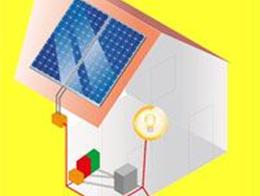Aug 7 2008
A team led by MIT and Caltech scientists has been awarded $20 million to help pursue the dream of meeting the world's energy needs with solar-fuel power plants.
 In a revolutionary leap that could transform solar power from a marginal, boutique alternative into a mainstream energy source, MIT researchers have overcome a major barrier to large-scale solar power: storing energy for use when the sun doesn't shine
In a revolutionary leap that could transform solar power from a marginal, boutique alternative into a mainstream energy source, MIT researchers have overcome a major barrier to large-scale solar power: storing energy for use when the sun doesn't shine
The grant from the Chemical Bonding Center (CBC), a National Science Foundation (NSF) Division of Chemistry program, will fund the "Powering the Planet" alliance for five years.
In 2005, NSF granted a Phase I CBC award to the group of Caltech and MIT scientists, who spent the $1.5 million and three years of Phase I conducting initial research and establishing public outreach plans for their idea.
In Phase I, the team proposed to develop nanoscale materials to make fuel from sunlight and water. They designed a nanorod-catalyst water splitter that incorporates a membrane to separate the oxygen- and hydrogen-making parts of the system.
MIT members of the team include Daniel Nocera, the Henry Dreyfus Professor of Energy and professor of chemistry, and chemistry professors Christopher Cummins and Jonas Peters.
The work has yielded promising results, and the alliance has expanded to 18 senior researchers at 12 institutions, who have signed on to participate in testing and refining the nanoscale water-splitting device.